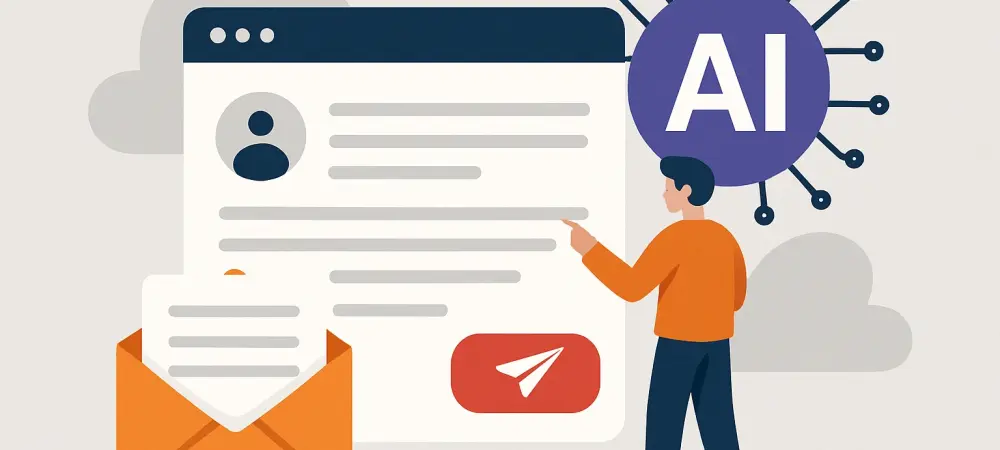Imagine opening an inbox flooded with over 100 emails daily, only to find one message that feels crafted just for you—right down to the product suggestion, tone, and timing. This is no longer a distant dream but a reality in 2025, where artificial intelligence (AI) has transformed email marketing into a hyper-personalized experience. With consumers expecting relevance amidst digital noise, brands face the challenge of standing out in crowded inboxes. AI offers a solution by enabling tailored communication at scale, driving engagement and conversions like never before. This guide explores best practices for leveraging AI in email personalization, providing actionable strategies to help marketers connect meaningfully with their audiences.
The Imperative of AI in Email Marketing
In today’s competitive digital landscape, generic email blasts fail to capture attention. AI has become indispensable for brands aiming to deliver relevant content that resonates with individual preferences. By analyzing vast datasets in real time, AI uncovers insights into customer behavior, ensuring messages hit the mark every time. This technology empowers marketers to move beyond basic tactics and embrace sophisticated personalization that meets modern expectations.
The benefits of adopting AI are substantial. Enhanced engagement stems from content that feels personal, while higher conversion rates result from precise targeting. Customer loyalty grows as recipients experience consistent value, and scalability allows even large campaigns to maintain a bespoke touch. These advantages position AI as a critical tool for any marketing team striving to excel.
Best Practices for AI-Driven Email Personalization
Dynamic Segmentation for Targeted Campaigns
One of the most powerful ways AI enhances email marketing is through dynamic segmentation. Unlike static lists that remain unchanged, AI analyzes real-time data such as browsing habits, purchase history, and engagement patterns to group audiences adaptively. This ensures campaigns reach the right people with content tailored to their current interests.
A compelling example comes from a fashion e-commerce brand that used AI to segment customers based on style preferences. By identifying athletic wear enthusiasts versus formal attire buyers, the brand delivered targeted product recommendations. The result was a notable uptick in engagement metrics, proving that precision in audience grouping can significantly elevate campaign effectiveness.
Predictive Content Recommendations
AI’s ability to predict user preferences mirrors the algorithms behind streaming platforms like Netflix. By evaluating past interactions, it suggests products, articles, or offers that align with individual tastes. This approach not only increases click-through rates but also enhances user satisfaction by presenting relevant options.
Consider a SaaS company that implemented AI to highlight underused features in their platform via email. By recommending specific tools to users based on their activity, the company saw improved retention and greater product adoption. Such personalization demonstrates how predictive insights can add value to customer experiences.
Send-Time Optimization for Maximum Impact
Timing plays a pivotal role in email success, and AI excels at determining the optimal moment to send messages. By studying user behavior, such as when they typically check their inbox, AI schedules emails for peak engagement periods. This data-driven method boosts open rates and overall campaign performance.
A real-world application involved a brand tailoring send times to different demographics. Emails reached professionals during morning hours and students in the evening, leading to a significant lift in visibility. This strategy underscores the importance of aligning delivery with recipient habits for better results.
Natural Language Processing for Subject Lines
Crafting compelling subject lines is an art, and AI enhances it through Natural Language Processing (NLP). This technology optimizes tone and sentiment to match audience preferences, increasing the likelihood of emails being opened. It also ensures alignment with brand voice, maintaining consistency across communications.
A financial services firm leveraged NLP to test and refine subject lines for personalized offers. By adapting the messaging style to suit different customer segments, the firm achieved higher interaction rates. This success highlights how AI can fine-tune even the smallest details for substantial impact.
Automated Personalization at Scale
The sheer volume of emails required in modern marketing makes manual personalization impractical. AI addresses this by automating the creation of millions of unique email variations, ensuring each recipient receives a message that feels custom-made. This efficiency meets the growing demand for relevance without sacrificing quality.
In the B2B sector, a company utilized AI to distribute personalized whitepapers to specific buyer personas. By aligning content with the recipient’s role and interests, the firm enhanced lead nurturing efforts. This example illustrates how automation can handle complexity while delivering targeted value on a large scale.
Closing Thoughts on AI-Powered Strategies
Reflecting on the journey through AI-driven email personalization, it becomes evident that these strategies have reshaped how brands connect with audiences in 2025. The adoption of dynamic segmentation, predictive recommendations, optimized timing, NLP-enhanced subject lines, and scaled automation marked a turning point for marketing efficacy. These practices delivered measurable gains in engagement and ROI across industries like e-commerce, SaaS, financial services, and B2B.
Looking ahead, marketers should focus on building robust data foundations to fuel AI tools, ensuring compliance with privacy standards like GDPR. Experimentation through A/B testing will refine outcomes, while maintaining a human touch in automated processes will preserve brand authenticity. As AI continues to evolve from 2025 to 2027, staying agile and prioritizing ethical data use will be key to unlocking even deeper personalization and sustained success.

